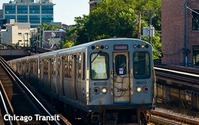
Transit advertising company Titan and the Chicago Transit Authority are testing Gimbal beacon technology at a number of locations throughout the CTA’s system, focusing on rail stations where
Titan currently manages the CTA’s out-of-home media assets.
The expanded pilot test reflects increased interest among advertisers in reaching consumers on the go via their mobile devices --
a trend that has also seen beacon technology introduced in retail establishments and other high-traffic venues.
Among other things, the partners are conducting tests to determine how Gimbal
beacons can enable the CTA to better communicate with riders, including integration with the CTA’s existing Bus Tracker and Train Tracker services. They will also attempt to determine how
advertisers can boost engagement with riders, based on their location, to out-of-home ad signage and point of purchase.
advertisement
advertisement
The partners emphasized that the beacon technology being tested will not
collect personalized data of any kind about commuters. These Gimbal beacons are transmit-only devices that cannot detect, collect, or store anything, including consumer information. The beacons simply
send out a signal that is picked up by mobile devices when they are equipped with the relevant app and the device owner has opted in to receive messages from beacons.
However, once a
user opts in and is detected by a Gimbal beacon, their mobile device automatically sends a signal to Gimbal’s servers, including information about their location, meaning that the company is
still able to track users to some degree.
The CTA announcement follows controversy in New York City, where Titan installed Gimbal beacons in phone booths but was later forced to remove them at
the request of City Hall after BuzzFeed reported their existence. More recently, BuzzFeed reported that Gimbal beacons were also being tested in Chicago and Los Angeles.